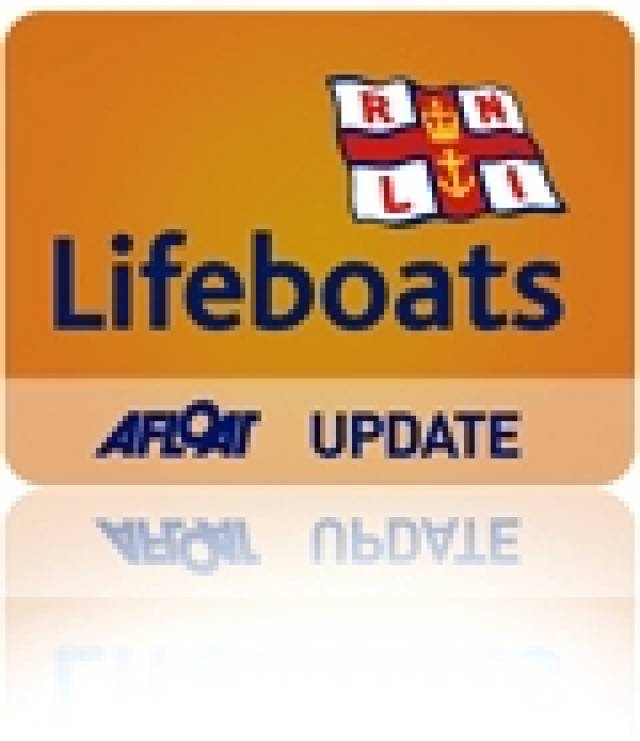#RNLI - Enniskillen RNLI today (10 June) brought four people to safety in two separate incidents on Lough Erne in Co Fermanagh.
In the first call-out of the day, the volunteer lifeboat crew retrieved a man and women from their stranded cruiser which had developed engine problems and run aground on Lower Lough Erne.
The inshore lifeboat Joseph and Mary Hiley and the Rescue Water Craft (RWC) were launched just before 10am at the request of Belfast Coastguard and made the 25-minute, six-mile journey to the casualty's last known position at Crunnish Island. The wind was coming from the south east, force five with good visibility.
On arrival at the scene, the crew noted the casualties had deployed their anchor and there were strong waves hitting the starboard side of the vessel.
The RWC crew member was transferred to the casualty vessel to reassure the crew and to check for any leakage. Another crew member from the lifeboat was transferred to assist with the tow and to lift the anchor.
The lifeboat established a tow and the vessel was refloated and brought to safety at Tudor Farm jetty, close to the initial location.
Less than three hours later, the inshore lifeboat Jason Logg was launched by request of Belfast Coastguard to rescue two people on a broken-down personal water craft on Upper Lough Erne.
The crew proceeded to the casualty's last known whereabouts at the mouth of Tamlagh Bay, four miles downstream from the station towards Enniskillen.
On arrival, the crew found the troubled vessel in the reeds with two people sitting on it. The crew transferred both passengers onto the lifeboat before setting up a tow and bringing the water craft back to Bellanaleck Marina.
Elsewhere in Northern Ireland, Portaferry RNLI brought three men and a teenage boy to safety yesterday afternoon after their yacht got into difficulty off Portaferry in Co Down.
The volunteer lifeboat crew was alerted just after noon following a mayday call that there was a demasted yacht in trouble on Strangford Lough.
The lifeboat was launched minutes later and was alongside the stricken vessel, a 37ft yacht located in the narrows of Strangford Lough, at 12.10pm. Weather at the time was good with clear visibility and a flat calm sea.
One of the four casualties, who had been thrown from the vessel, had been recovered by a fellow crew member and all four were on board the yacht when the lifeboat crew arrived on scene.
Alongside, there was difficulty recovering the vessel so the mast and sail were cut away. Once cut, the lifeboat proceeded to tow the yacht with it crew on board safely back to Strangford where it was tied to a mooring.
Two of the crew were conveyed to hospital while the other two were made comfortable on the shore.
Portaferry RNLI was requested to launch for a second time later this afternoon following a report that a swimmer had gone missing in Newtownards. The lifeboat having launched was subsequently stood down after the missing person was found safe and well.































































